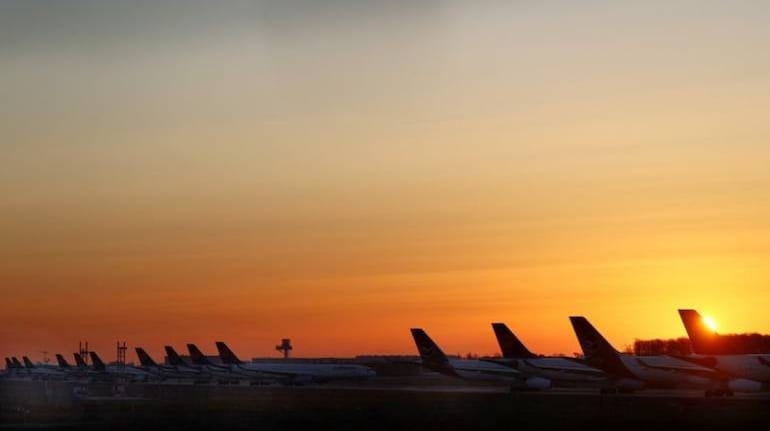



The United Kingdom has added India to the travel 'red list', country's Health Secretary Matt Hancock said on April 19. The announcement was made hours after British Prime Minister Boris Johnson cancelled his scheduled visit to India.
The red list, which includes 39 other countries along with India, denies entry to anyone who has visited the listed nations in the past 10 days. The British and Irish citizens, however, are allowed to return but would be mandatorily quarantined for 10 days from the time of arrival.
India will be added to the stringent red list from 4 am on April 23, Hancock told the Parliament. "We must protect the progress that we've made in this country," the Health Secretary said, adding that 103 COVID-19 cases of the "Indian variant" - B.1.617 - have now been found in the UK.
"We’ve recently seen a new variant first identified in India. We’ve now detected 103 cases of this variant, of which again the vast majority have links to international travel and have been picked up by our testing at the border," the Guardian quoted him as saying.
Hancock added that he "understands the impact of this decision" - to put India under red list - but the "House would concur with his view" that it is necessitated considering the coronavirus health crisis.
The move is expected to significantly hurt the business operations of Air India and Vistara - the two airlines operating a number of planes between the UK and India.
Currently, five weekly flights of Air India, two of British Airways and three of Virgin Atlantic are operational between the Mumbai and London's Heathrow airport.
Between the Delhi airport and Heathrow, six flights a week of Air India, three of British Airways and two weekly flights each of Vistara and Virgin Atlantic operate while three weekly flights of British Airways and two of Air India also operate between the Heathrow and Hyderabad airports.
Also read: UK PM Boris Johnson cancels his visit to India amid COVID-19 surge
Earlier in the day, the Indian Ministry of External Affairs issued a statement claiming that the two countries have mutually decided to defer Johnson's visit to India that was scheduled next week.
"In view of the COVID-19 situation, it has been decided by mutual agreement that the Prime Minister of the United Kingdom will not visit India next week. The two sides will be holding a virtual meeting in the coming days to launch plans for a transformed India-UK relationship," it said.
Earlier, Johnson was scheduled to visit India in January as the chief guest of the Republic Day event. However, the second wave of the pandemic - which had then battered the UK - had compelled him to postpone the visit.
The second round of pandemic has now led to an explosion of cases in India, with the country reporting more than 2 lakh cases a day for nearly a week. As per the last update issued by the Union Health Ministry on April 19, a total of 2,73,810 fresh infections and 1,619 deaths were reported.
Discover the latest Business News, Sensex, and Nifty updates. Obtain Personal Finance insights, tax queries, and expert opinions on Moneycontrol or download the Moneycontrol App to stay updated!
Find the best of Al News in one place, specially curated for you every weekend.
Stay on top of the latest tech trends and biggest startup news.